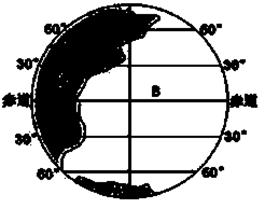阅读《带上三句话上路》,回答问题。
李小刀,你将要远行,孩子,将有一生的岁月等你去走,我送你三句话带在身边。
快乐是一种美德
要保持快乐,孩子,这是我们穷人最后的奢侈。不要轻易丢掉快乐的习惯,否则我们将更加一无所有。
你要快乐,在每一个清晨或傍晚。你要学会倾听万物的语言,你要试着与你身边的河流、山川、大地交谈。在你经过的每一个村庄,你要留下你的笑声作为纪念。这样当多年以后人们再谈起你时,他们会记得当年曾有一个多么快乐的小伙子从这里经过。
快乐是一种美德。无论你背着多少行李,你也不要把它扔到路边的沟里。即使你的鞋子掉了,脚上磨出了血,你也要紧紧地攥着快乐,不和它离开半天。
快乐是一种美德,孩子,这是因为快乐能够传染。你要把你的快乐传染给你身边的每个人,无论他是劳累的农夫还是生病的旅人,无论他是赤脚的孩子还是为米发愁的母亲,你都要把快乐传染给他们,让他们像鲜花一样绽开笑脸。
孩子,在你经过的每个村庄人们都像亲人一样待你,他们给你甘甜的泉水,给你的行囊里塞满干粮,你就给他们快乐吧!记住,快乐是一种美德,它能让你在人们的心中活上好多年。
不为一朵花停留太久
在你的旅途上,孩子,会有许多你没有见过的鲜花开在路边。它们守在溪流的旁边,在风中唱歌跳舞。
不要忽略它们,孩子,我们的眼睛永远不要忽略掉美。你要欣赏它们的身姿和歌声,你要因为它们而感到生活的美好。不管你的旅途多么遥远,不管你的道路如何艰险,你都要和鲜花交谈,哪怕只用你喝点水、洗把脸的时间。
不要看不见满径的鲜花。但我要告诉你,当你沉浸在花香中的时候,不要忘记赶路,不要为一朵花停留太久的时间。你只是一个路过的人,孩子,你要去的地方是前方,你的旅途依旧漫长,你的鞋子依然完整,你的双眼依然有神,你属于远方,而不是这里。
不为一朵花停留太久。相信这条路的前头还有千朵万朵花在等你。你要知道自己究竟要去哪里,在你没到之前,孩子,不要为一朵花停住脚步。
你去的地方是远方,孩子,你要知道,那是很远、很远的地方。
为帮过自己的人准备一份礼物
你会在某一天踩着满地阳光到达。孩子,只要你的身体里流着奔腾的热血,只要你举着火把吓退野兽,你就早晚会抵达那个你想要去的地方。那是远方,那是幸福之乡。就在你打点行装,准备返回的时候,我要对你说,孩子,别忘了为那些帮过自己的人准备一份礼物。
你要记得在你的旅途上你喝过别人给你舀来的泉水,你吃过别人给你送上的食物,你听过一位姑娘的歌声,你向一个孩子问过路,你在一间猎人的小屋中度过一个漫漫黑夜。要记住他们,孩子,你要记往这些人的声音、容颜。在你返回的前一天晚上,你要为他们准备好礼物。
你要把几块丝绸、几块好看的石头细心地包好。你要给姑娘准备好鲜花,你要给老人准备好烟丝,你要想着那些调皮的孩子,他们的礼物最好找也最难找。
这些就足够足够了。再带上你在路上看过的风景、听过的故事,再带上你的经历和感触,在燃着火的炉边,讲给他们听。
告诉缺水的人们前头哪里有水,告诉生病的人们哪种草药可以治病,把你这一路的经验告诉他们,把前方哪里有弯路告诉他们。
这些是最好的礼物。
不要忘了给帮过自己的人准备一份礼物,孩子,只有这样你的这次远行才算没有白走。
1、“不要为一朵花停留太久”中的“花”可以怎么理解?
____________________________________
2、你有没有为帮过自己的亲人准备礼物?请具体说说。
____________________________________
3、为什么不要为一朵花停留太久?(用自己的话回答)
____________________________________
4、怎样理解“那是远方,那是幸福之乡。”中的“远方”、“幸福之乡”?
____________________________________
5、为什么给帮过自己的人准备礼物,“这次的远行才没有白走”?
____________________________________
6、文章一开始提到“我们穷人”。你认为拥有这三句话的人能被称为“穷人”吗?这两个“穷人”的概念有何不同?
____________________________________
1、沿途的各种诱惑。
2、答案不唯一。参考:有。有一次我不小心把伞掉了,天上下大雨回不了家,小朵把伞借给了我,第二天我送了一个海绵宝宝圆珠笔给她。
3、因为自己的目标还在远方。如果为一朵花停留太久,可能会忘了自己远行的目的,也可能会延误了时间。
4、理想的彼岸。目标最终达成的时候。
5、学会感激才是最后的完美。
6、不能。前一个穷人是指物质上的;后一个是指精神上的。在精神上富足的就不是穷人。

